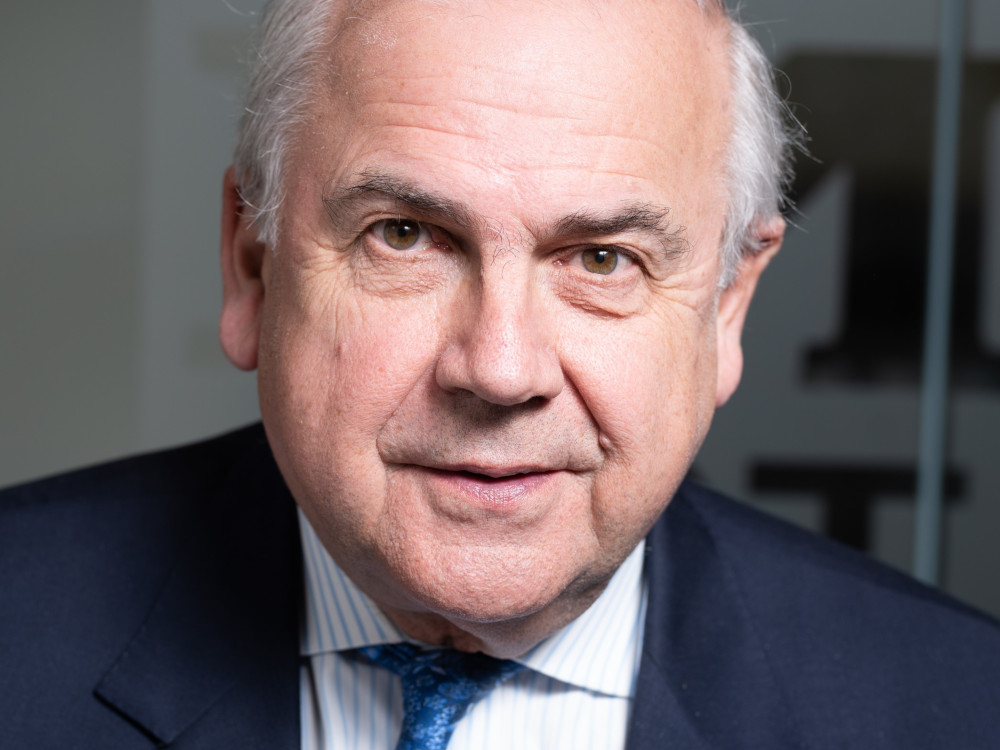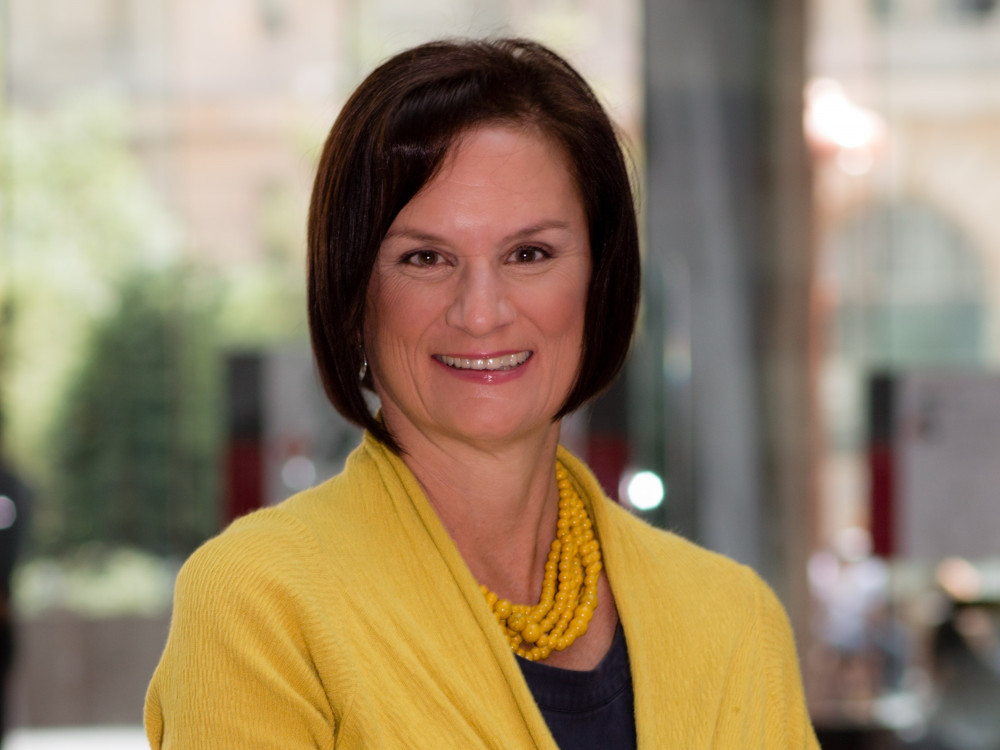Keith Sjögren has a unique perspective on philanthropy in Canada, with a career that spans wealth management and research on the charitable sector, as well as involvement in non-profit organizations as a board member and donor.
Sjögren (pronounced Shergren) was born and raised in England, where he started his career working for a merchant bank owned by the Rothschild family. He came to Canada through a job with CIBC, was educated at Carleton University and the University of Toronto, then rejoined CIBC and rose to executive positions that included senior vice-president of Banking & Trust and president of CIBC Securities.
Sjögren left the bank in 1995 and helped build Taddingstone Consulting Group, a boutique firm that provided research and consulting services to Canada’s financial services industry. When the consulting side of the company was acquired in 2006 by Investor Economics, he moved there and subsequently became focused on issues of philanthropy as they related to personal wealth management, retiring as managing director in 2021.
I would like to see high-net-worth individuals come forward to work with the charities that represent causes they are keen about, instead of waiting to be asked.
Sjögren remains a consultant to the charitable sector, most recently co-writing a report with Watermark Philanthropic Council on the use of capital in donor-advised funds (DAFs) to support impact investments. He’s also chair of the advisory council for the Master of Philanthropy and Nonprofit Leadership (MPNL) and Diploma in Philanthropy and Nonprofit Leadership (DPNL) programs at Carleton University.
Canadian Family Offices spoke with Sjögren about donation trends in the country, changes he’d like to see in the charitable sector and why Canada needs a centre for philanthropy and civil society.
What was your personal involvement in philanthropy that brought you to where you are today?
I grew up in a charitable household and family. I think that if you achieve some level of professional success, you realize that you have an opportunity to give back to society, and to choose how you want to do it.
I’d always been a volunteer at Carleton University, and I was a director on the boards of the Canadian Opera Company and the Centre for Addiction and Mental Health Foundation, seeing philanthropy in action. I have also been a member of a number of fundraising ‘cabinets’ for various charities.
Philanthropy was a focus for you at Investor Economics?
Correct. The majority of my work was related to the research and publication of reports associated with vehicles that high-net-worth people were using to administer their wealth and philanthropy—the use of private foundations and the emergence of donor-advised funds. This was primarily personal philanthropy, not corporate philanthropy.
You say it’s not corporate, but many wealthy donors have businesses.
When I say corporate, I am referring to gifts by major companies. There has been no material increase in recent years, despite higher levels of profitability.
For sure over the last 10 years, philanthropy in Canada has been driven by entrepreneurs who created wealth through their commercial activities. Entrepreneurs are more active philanthropists than people who are employed, by a measure of two to one in terms of the size of gifts.
Why is that?
Because entrepreneurs tend to be more community-focused. I wouldn’t say every entrepreneur is generous, but if you look at major gifts in Canada, the biggest have come from successful entrepreneurs who’ve gone through a liquidity event; it could be the sale of a business, it could be the public listing of a business.
Isn’t there a strategic element as well, particularly tax considerations?
Well, yes, although if you look at research data, tax is a benefit—but it’s not a driver, it’s not the primary consideration. If you’re a philanthropist, you’re first going to think of the benefit to society that’s going to result from your gift, not the benefit to yourself, which is the tax credit.
I don’t think I’ve ever seen any research suggesting tax is a primary motivator. But it’s definitely a factor. And Canada has some of the most generous tax regulations relating to charitable gifts of any country in the world.
Where do Canadians rank in terms of philanthropy?
Canada currently ranks 14th in the world index of generosity. We are a nation that is extremely wealthy, but we’re not the most generous. There are plenty of countries that are more generous in terms of volunteering and giving, on a per capita basis, and we’ve seen Canada’s ranking slip over the last decade.
There’s been a decline in the overall participation rate of Canadians in charitable giving. Around 16 per cent of Canadians, when they file their taxes, actually claim a tax receipt; 10 years ago it was more than 20 per cent. At the same time, in the charitable sector, if you remove government funding and say, ‘Who is really contributing?’ it is noticeable that the high-net-worth are contributing more and more in terms of a share of overall charitable donations.
And what are the participation rates among high-net-worth people?
We don’t look at data on an accumulated wealth perspective, which is unfortunate, because most large gifts are given out of accumulated wealth. But if you look at Canadians earning over $500,000 a year, you’ll see that only two-thirds claim a tax credit, suggesting that a third of Canadians earning over $500,000 either have not given anything in that year or failed to claim a tax receipt.
We are seeing high-net-worth people give more, but we’re not seeing the percentage of high-net-worth donors increase. There are a whole bunch of people earning a lot of money who are not giving to charity.
How about charitable giving by families?
In about 36 per cent of Canadian families, either one or both or all members of the family contribute. Even that is relatively low, and declining.
How does your family deal with donations?
In our own family, we agree on the causes we want to support and how we want to support them. We’re very supportive of education. For example, my wife Dorothy and I have a scholarship fund that supports an MPNL student with an interest in working in the cultural or performing arts community.
Our family has a DAF, and each of us makes a grant to a charity of our choice on our birthday.
What are some recent trends in giving?
We’re seeing that the people who give to charity are narrowing the number of causes they support. What they give to is changing, too: Social services like food banks and shelters are becoming a priority. We’re all going to be affected by climate change, but climate-change charities are relatively poorly supported by donors
What do you do as chair of the advisory council at Carleton?
I work with a dynamic group of council members who link academics to the real world of the charitable sector in Canada. We ensure the university is aware of developments taking place, to ensure what is being taught in the master’s degree program is current and relevant. We also provide links to philanthropists and other leaders within the sector. Each of us on the council has a network within the charitable sector, whether they’re on the charity side or on the giving side. So we link the university to a community of philanthropists and a community of charities.
How has the program evolved?
We have grown from being a degree program to being an active centre for research as well as teaching. We recently completed funding for Canada’s first academic chair in philanthropy, and we now are confident that with the support of leading philanthropists we can create Canada’s first Centre for Philanthropy and Civil Society at Carleton.
Why do we need such a body?
We need to support the charitable sector in undertaking research and helping to develop leaders of the future. We have groups like the Canadian Association of Gift Planners and Community Foundations of Canada, but there’s no central body looking at public policy issues related to the charitable sector. For example, should we have a charities commission, as exists in the United Kingdom?
I take it a major focus would be research on rejuvenating philanthropy. What are your thoughts on how to do that?
Canadians currently give about $12 billion annually, which has been creeping up, but if you adjust for inflation, it really hasn’t risen significantly.
There is an urgent need to generate more donation flow to charities of all types, but there’s fierce competition for donation dollars. Some charities do really, really well and some struggle because they don’t have the resources to apply to fundraising. They’re spending most of their time providing services.
What would you like to see happen in the charitable sector?
There are 86,000 charities in Canada, and I’d like to see some consolidation. There’s a lot of duplication of administration, duplication of service, duplication of premises, etc.
I would like to see the regulation of charities moved out of Revenue Canada to a separate entity that is only focused on the charitable sector. Our representative is now the Minister of Finance, because the CRA falls under finance, and we’re not getting enough airtime at the cabinet table.
We should have an independent charities commission, which would give the charitable sector a clearer voice in terms of public policy. We’ve seen this work in other countries; it’s not as though this is groundbreaking or revolutionary.
And we’ve got a myriad of charitable organizations, but we don’t have one tent where everybody can meet and talk about common issues, or a single conference on the charitable sector in Canada.
What’s on your wish list for philanthropy by the wealthy?
I would like to see high-income and high-net-worth individuals dig a little deeper into their safety-deposit boxes and their wallets and come forward to work with the charities that represent causes they are keen about, instead of waiting to be asked.
Is there anything that gives you encouragement?
Women are having an increasingly important influence as donors; they’re earning more, they’re accumulating more wealth and the contribution of women in terms of donations is increasing. At one time, this was a ‘male, pale and stale’ activity, but that is no longer the case. Women are playing a significant role within the charitable sector—as executives, as directors and as donors. That’s a beacon of hope for me.
People over the age of 65 are also extremely generous, and they set an example to their children and grandchildren.
Do we worry about young people as donors?
We do. The younger generation wants to save for retirement, they want to pay off mortgages, and the challenges they face are different than their parents faced. Having said that, many invest according to their values. They’re less likely to invest in, say, an oil-and-gas pipeline, and they’re more likely to invest in a company that makes mosquito nets, for example, or a business that’s socially responsible.
So they might give to more contemporary social causes?
Yes, I think we may see an increase in donations to environmental causes and climate change and a shift away from the more traditional causes like healthcare and education. The group that’s caught in the middle is the arts; the arts are crying out for funding.
Does the current economic uncertainty hurt donations? What can we do about that?
Indeed it does, but you can’t do very much about that, really. A slower pace of wealth generation and uncertainty in income flow have a negative impact on charitable giving.
We want a stable economy that’s growing, we want to have normal rates of employment, and if we’re saying entrepreneurs drive philanthropy, the more we can stimulate entrepreneurial activity, the more likely it is to have an impact.
Mary Gooderham is a writer, editor and communication advisor based in Ottawa. She leads Cohen Gooderham Communications and has worked as a journalist for more than 40 years at The Globe and Mail, as a recording officer at the International Monetary Fund and as a custom content creator for online and print media. She’s been a contributing writer at Canadian Family Offices for four years, focusing on investment strategy, trusts, philanthropy, women in finance and estate planning.
Get our new quarterly newsletter about philanthropy: Canadian Family Offices’ new newsletter brings you key insights, trends and expert perspectives on charitable giving, tailored to Canada’s wealth leaders and giving communities. Click here to subscribe now to stay ahead.
Please visit here to see information about our standards of journalistic excellence.




